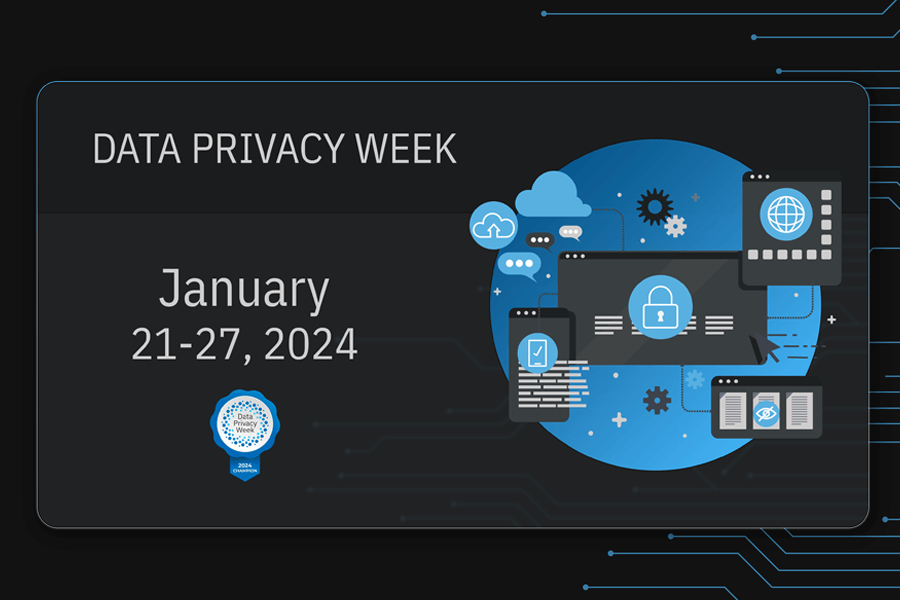In 2022, the National Cybersecurity Alliance (NCA) expanded Data Privacy Day into Data Privacy Week because the issue is that important. The goal is twofold: to help citizens understand they have the power to manage their data and help businesses understand the importance of respecting their users’ data.
Your online activity creates a treasure trove of data. This data ranges from your interests and purchases to your online behaviors, and it is collected by websites, apps, devices, services, and companies all around the globe.
Convenience vs Privacy
Unfortunately, you cannot control who has access to every byte of your data. Many online services require some of your data to function properly – a map app needs location data to provide directions and an image sharing site needs access to your photos. All collected data is linked to you, but some data points are used to track you across different platforms and sold to data brokers. Depending on the app or service, these data points can include your search history, precise location, physical address, payment info, audio data, emails, text messages browsing history and health information. This is the tradeoff between convenience and privacy and understanding this balance can help you make better informed decisions about the data you share and the privacy you give up.
Tips to take charge of your data privacy in 2024
Control access to your data
Many devices, browsers and computers will ask if you want to share certain types of data with a new app or website. Paying close attention to these requests can help you take charge of your data. Why does a Solitaire app need your location data? Why does a social media app need to know the phone number of every contact in your device? On most mobile devices you can choose if an app only has access to data while using it. If an app or software program will not function unless you share certain data or access privileges you are not comfortable with, ditch the app and access the service via your browser or find another app.
Check your settings
Even if an app or software program does not ask for your data, you should assume it is still collecting it. App and software permissions are typically accessed within the general settings of your device. So, get in the habit of checking your privacy settings and ensure everything fits within your comfort level. Some of the default settings you should turn off or set to“’while using the app” include:
- Camera – off
- Microphone – off
- Location – off
- Sync Contacts – off
Do an “app audit”
Every few months or so, go though the installed apps on your devices. This isn’t just about de-cluttering – many apps will collect and share your device use data even when you don’t use them. Why should an app you downloaded a year ago and used once get access to all your precious data? Don’t be afraid to be ruthless, you can always download the app again.
Protect your data
Data privacy and data security go hand-in-hand. Along with managing your privacy settings, following simple cybersecurity tips can help keep your data safe:
- Create long, unique passwords for each account and device. Consider using a password manager to securely store and maintain your passwords and other sensitive account information.
- Use multi-factor authentication (MFA) whenever possible, this can help keep your data safe even if your password is compromised.
- Turn on automatic updates for your devices, software, and browser, or make sure you Install software updates as soon as they are available.
About the National Cybersecurity Alliance
The National Cybersecurity Alliance is a non-profit organization on a mission to create a more secure, interconnected world. They advocate for the safe use of all technology and educate everyone on how best to protect themselves, their families, and organizations from cyber crime. As well as create strong partnerships between governments and corporations to amplify their message and to foster a greater “digital” good. For more information, please visit https://staysafeonline.org.





.svg)